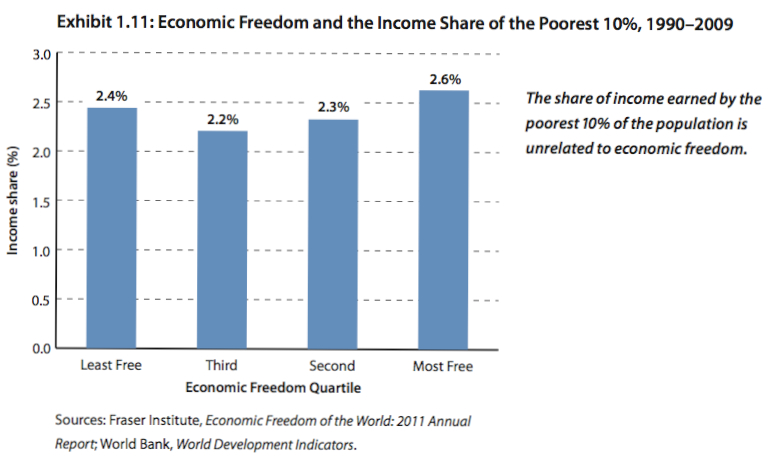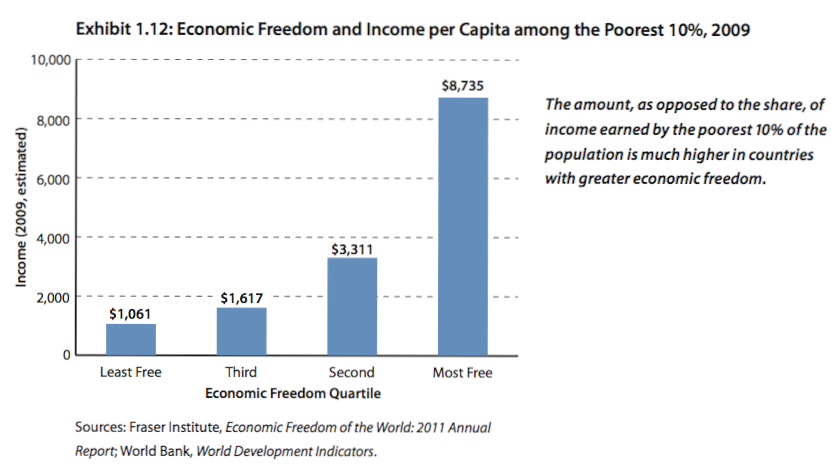The hubbub over Rep. George Cleveland’s comments about poverty during a meeting Thursday of the N.C. House’s committee on early childhood education offers an opportunity to revisit an important set of facts about poverty.
If you have to be poor, it’s much better to be poor in an economically free country — a country with low tax rates, minimal regulation, secure property rights, a strong commitment to the rule of law, and free trade. Why? Two charts from the Fraser Institute’s latest Economic Freedom of the Word index explain. The first chart shows that as much as government tries to restrict freedom through higher taxes and more wealth redistribution, the poorest of the poor will get the same percentage of the economic pie.
 But the actual income level for the poorest of the poor differs drastically from the least economically free countries to those with the most freedom.
But the actual income level for the poorest of the poor differs drastically from the least economically free countries to those with the most freedom.
 So when Cleveland said, “We have no one in the state of North Carolina living in extreme poverty,” he was likely considering the fact that American poverty is much different from poverty around the globe.
So when Cleveland said, “We have no one in the state of North Carolina living in extreme poverty,” he was likely considering the fact that American poverty is much different from poverty around the globe.
Economist Robert Lawson of Southern Methodist University, one of the co-authors of the Fraser Institute report, put it this way in a recent interview with Carolina Journal Radio/CarolinaJournal.tv:
In terms of treatment of the poorest of the society, though, it’s much better to be in an economically free country because economically free countries are richer. The poor are richer, too. You look at the bottom 10 percent of any country — the poorest 10th of the United States — the poorest 10 percent of the United States has an income level of about $8,000. That’s more than the average person in India. So if you’re more economically free, your poor are going to be much better off, no doubt about it.


